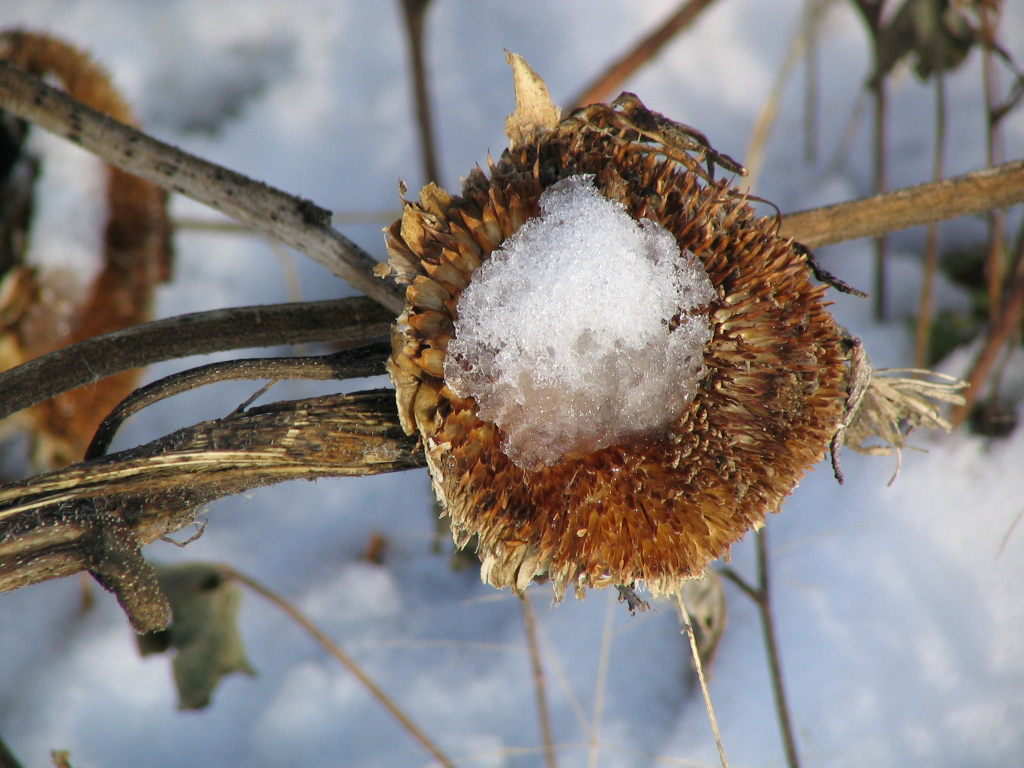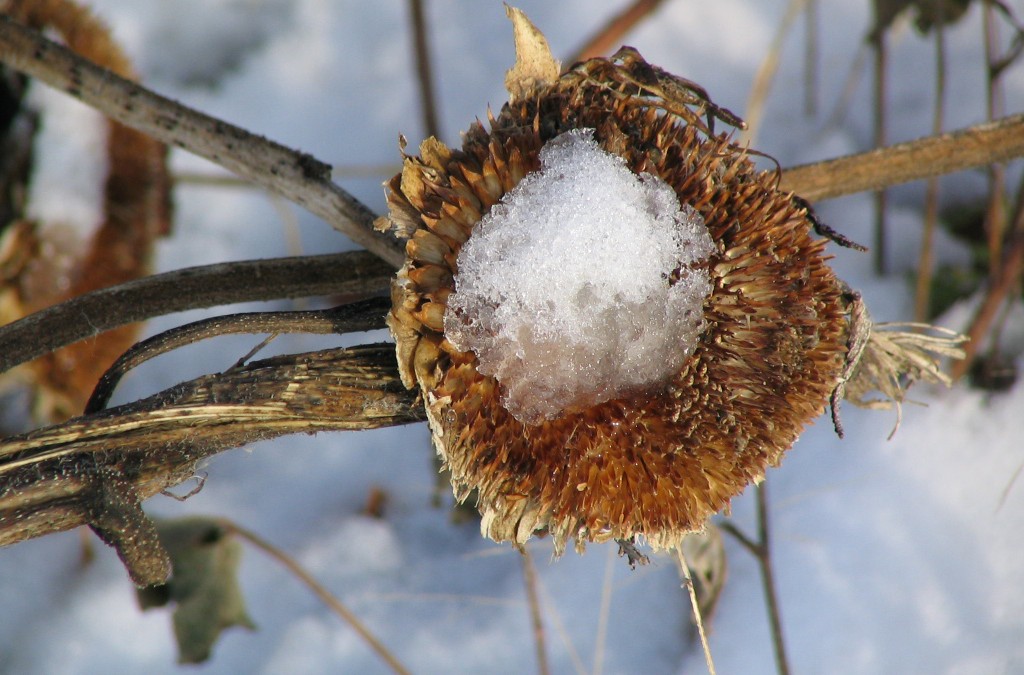 Beneath the snow my garden awaits the rebirth of spring. For months, there have been no visible signs of growth–no change, no movement, no life. Frigid and cold, the world outside my window appears to be locked in a state of suspended animation. The sunflowers stoop low under heavy caps of crystallized snow. The bean trellises and toppled tomato cages take on magical forms as the flakes stack quietly, softening the rigid contours. The rest of the landscape is indiscernible. Boundaries between hedgerow and field have merged under an insulating blanket of white. From one storm to the next, the snow drifts deeper, accumulating and stretching far to the horizon.
Beneath the snow my garden awaits the rebirth of spring. For months, there have been no visible signs of growth–no change, no movement, no life. Frigid and cold, the world outside my window appears to be locked in a state of suspended animation. The sunflowers stoop low under heavy caps of crystallized snow. The bean trellises and toppled tomato cages take on magical forms as the flakes stack quietly, softening the rigid contours. The rest of the landscape is indiscernible. Boundaries between hedgerow and field have merged under an insulating blanket of white. From one storm to the next, the snow drifts deeper, accumulating and stretching far to the horizon.
Just as winter has gripped the landscape, I, too, have been gripped by life’s circumstances. In the call of duty, boundaries once clearly defined have become indistinct. My joy is gone, my cup half-empty. As the snowdrifts stretch far to the horizon, hopelessness stretches far out before me. I fight the day-to-day sameness, despairing over God ordained limitations. I cannot change my circumstances anymore than I can tell the southerly breeze to blow and melt the winter’s snow. But unlike my garden, I resist every effort to be still, to wait upon the Lord to provide the nourishment my thirsty soul longs for.
How long, oh, Lord, how long? How long will I have to endure this season Thou hast ordained for me?
Ecclesiastes 3:1 declares: “To everything there is a season, and a time to every purpose under the heaven . . .,” but this season is particularly long. Will spring ever come? Will hope ever spring eternal? Spring and autumn pass quickly, summer lingers, but winter is longer and harder to endure. Then I am reminded of a passage of scripture from the book of James, “Consider it all joy, my brethren, when you encounter various trials, knowing that the testing of your faith produces endurance. And let endurance have its perfect result, so that you may be perfect and complete, lacking in nothing.”
Let endurance have its perfect result. There are two Greek words for the word endurance. The first is prosdechomai, which means to await (with confidence or patience), allow. The other is hupomone which means cheerful (or hopeful) endurance, patient continuance (wait).
In order to experience joy in the midst of trials, I have to let endurance have its perfect result. I have to be still and wait on the Lord in hopeful expectation, knowing there is great purpose for what I am going through. And when I allow my soul to be stripped of all of its defenses, its busyness, its escapes, its pleasures–finally, when I cease striving, words of comfort come into remembrance from a loving Father who knows and cares about the minutest details of my life:
“Be still, my soul; the Lord is on thy side;
Bear patiently the cross of grief or pain;
Leave to thy God to order and provide;
In every change He faithful will remain.
Be still, my soul; thy best, thy heavenly, Friend
Through thorny ways leads to a joyful end.”
Even when it appears there is no end in sight, in the stillness He speaks. And through the hymn writer, He reminds me to bear patiently my cross of grief and pain. How could I forget? Wanting so desperately to escape my circumstances, I fail to recognize the grace-filled moments that exist within them.
Some spiritual seasons are longer than others. There must be a time of inactivity to experience growth. There must be time of near death, for life to teem again. I embrace the lessons my garden gifts me in the dead of winter. I choose to stay hidden in my Maker, awaiting rebirth–my heart dead to its own desires, slumbering through a long cold winter of the soul.
Joy is here just waiting to be embraced.
Be still, my soul; the Lord is on thy side.
Blessings,
Jill

